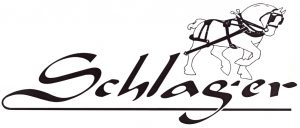The team at Schlager Excavating, serving the Parry Sound and Muskoka areas, knows all too well what can happen if you fail to properly maintain your septic system. To avoid a devastating disaster to your home and yard, it’s important to not only have scheduled maintenance done but to also be mindful of how you treat your system on a day-to-day basis.
The rule of thumb is to have your septic system inspected at least every three years, and have it pumped out as needed, which is generally every three to five years. Schlager offers inspections and maintenance programs to help you keep track of your services.
In addition to the septic tank, it’s also crucial to keep an eye on your treatment units and effluent filters. There should be manufacturer’s instructions regarding these.
It’s also important to note that septic tanks do not last forever. There are several instances where replacing the unit is your best option. For example, steel tanks can decay over time, and generally only last 20 to 25 years. Also, make sure your tank is big enough for your needs. Consider how many people live in your home or cottage at any one time. If you have an undersized unit for your needs that could result in the kind of mess you won’t want to clean up.
Make sure all filters are installed and cleaned regularly. Effluent filters should be cleaned out once a year to avoid costly repairs down the road.
If your unit has them, be sure to locate and test that all of your pumps and alarms are working properly. Keep a detailed log of all repairs, pumping, cleaning, and maintenance, so you can schedule services at the right times.
In addition to cleaning and maintaining your septic system, it’s also important that you take care of how you use your system on the daily basis. Be mindful of what you put into it. Hazardous waste should not be flushed down into your septic system. Take waste such as paint, grease, pesticides, solvents, thinners, nail polish remover, kerosene, antifreeze, gas, or oil to the municipal hazardous waste facility.
When cleaning your kitchen and bathroom, avoid using bleach, caustic toilet bowl cleaners, or drain cleaners. These products can kill the useful bacteria in your tank, and cause waste to pass through your system without being properly treated. Also, buy detergents without phosphates so not to damage the local water quality.
Throw items such as dental floss, feminine hygiene products, condoms, diapers, solid foods, hair, dryer lint, and cat litter in the garbage – do not flush it down. These items can clog your leaching bed and damage your pipes. Also, do not add any commercial septic tank additives without speaking with the local health department.
It is not recommended that you install a garbage disposal in your home or cottage if you have a septic system. If your unit allows for one, you will have to schedule more frequent pump-outs.
While what you put into your septic tank is important, it’s also imperative that you be diligent about what you put on top of it. While you might want to cover it up and make use of the space on your property, you should plant nothing other than grass on top of or near your leaching bed. Having grass here will be beneficial, as it will aid in evaporation and help to prevent erosion. Do not apply manure or fertilizers to this area.
Don’t allow shrubs or trees to grow near the leaching bed or tank. Tree roots can do some serious damage to your system if allowed to grow too close. You cannot park vehicles, or allow livestock to walk over your septic system, as excessive weight can cause lasting damage.
You also need to control runoff from your eavestroughs, basement sump pumps, and excessive watering. You don’t want any of this to cause drainage into your leaching bed.
Lastly, you can be more green about how you use your septic system. Use low flow shower heads, low flush toilets, and make sure all your plumbing is well maintained, and not leaking. Don’t overuse toilets, washing machines, dishwashers, showers, or bathtubs. You don’t want sludge to leak out of the tank and into your leaching bed.
For more information, or to schedule an inspection, repair, or septic tank design, please call Schlager Excavating today at 705-732-1802.
